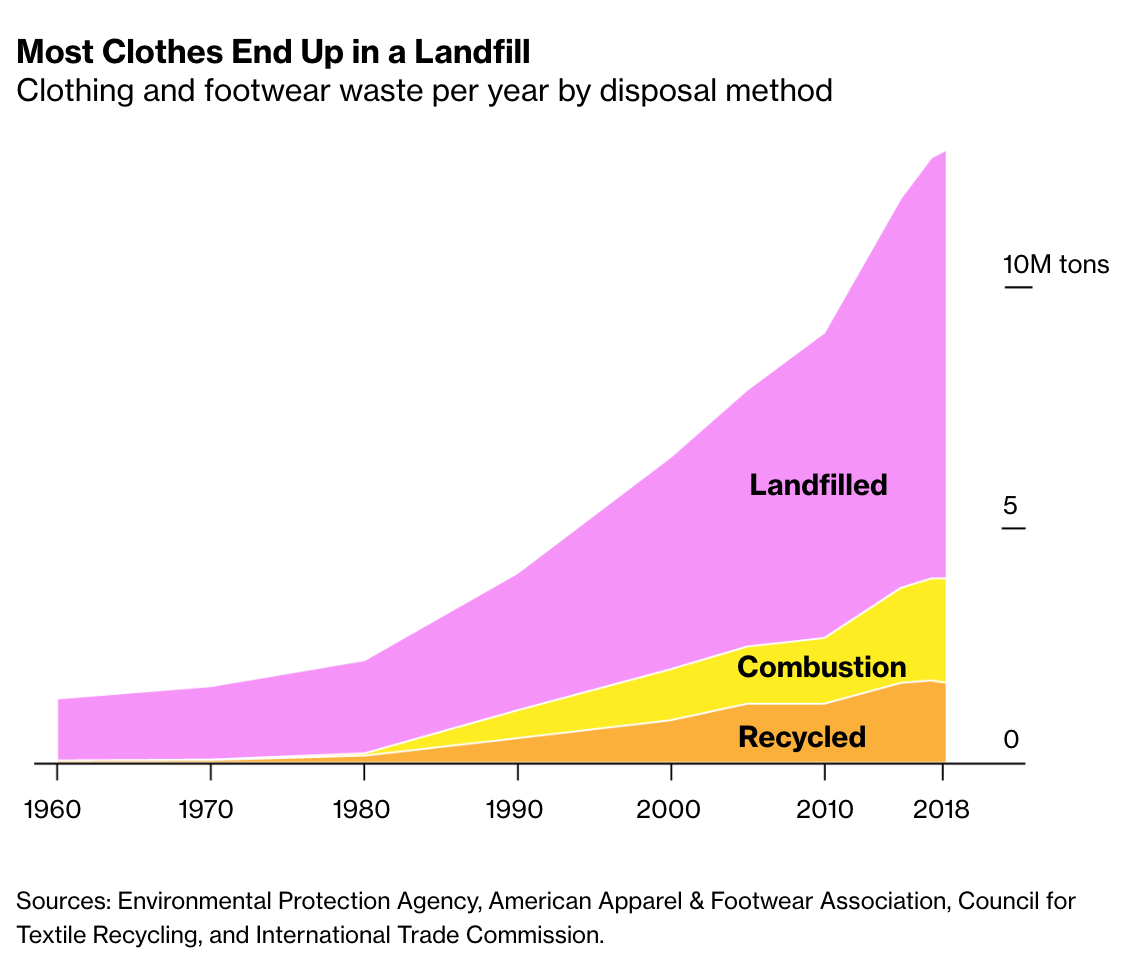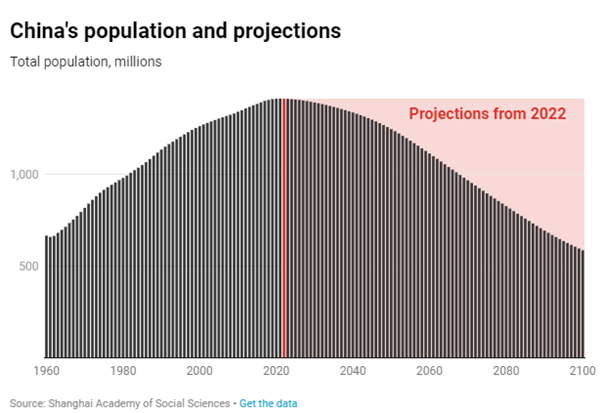Rishad Tobaccowala: Why Fewer
The Future Does Not Fit in the Containers of the Past. Edition 134.
An underlying assumption many individuals, managers, and businesses incorporate into our decisions and choices is the concept of maximizing.
While much of growth and well-being may be driven by more, a case could be made that less is what many should aim for if we are to solve problems, be happier, and grow.
We are moving into an age of “fewer.”
Fewer things.
Fewer “managers.”
Fewer big companies.
Fewer people.
This might give rise to greater rather than fewer opportunities.
1.Fewer things.
In a piece on Sustainable Commerce, Rex Woodbury points out the following:
a) Brands overproduce more than $500B of goods annually. In many categories less than half the inventory is sold.
Source: Hannah Murdoch & Rebecca Kaden of USV and Shopify data
b) Much of this unsold product ends up in landfills like the Great Pacific Garbage Patch, which covers 1.6 million square kilometers in the Pacific Ocean between Hawaii and California. The garbage patch is growing exponentially, swelling 10x each decade since 1945.
c) Most of the fast fashion produced clothing is worn fewer than 6 times and is tossed filling landfills.
What if one of the most powerful ways to address environmental challenges is to buy, consume, and sell less?
Photography by Paul Wakefield
2.Fewer Managers.
Listen carefully to many employees as to why they prefer working from home or away from the office. In addition to flexibility, freedom, and work-life balance, they are more productive away from micro-managing, controlling, monitoring, continuously checking in management.
The past 3 years of working from home and or hybrid work has revealed that many managers are in crisis because they were not really managers but monitors, not leaders but bosses, not problem solvers but project assigners, and the talent who they oversee have begun to wonder what actual value their managers create besides “managing.”
Managers are an important role, however Greg Rosalsky’s article on NPR, “Why your bad boss will probably lose the remote-work wars”, reveals much of the blather about the importance of returning to the office is because management has failed to re-invent itself and recognize that there is much less need for their hovering. In person interaction is key for training, creativity, and relationship building, but a forced march to x days in an office may not be the way to achieve this.
We have entered an age of “De-bossification.”
In many industries, particularly “White-collar” ones, the era of “bosses” is in decline.
There is a rise in need for leaders, guides, coaches, mentors, role-models, creators, and builders. Less of a clamoring for bosses, managers, controllers, monitors, evaluators, and paper pushers.
This shift has been driven by changing demographics, the spread of technology, the rise of unbundled and distributed work, new behavior expectations, and a re-definition of what “work” is. There is a rise of fractionalized and free-agent talent who work for themselves, or at multiple jobs, and are expected to comprise most of the work force in the US by the end of the decade.
More and more companies like Meta are interrogating why they have so many levels of managers and whether these managers create enough value to offset their cost and the extra time multiple layers creates.
2023 will be the year of “The Great Flattening” as multiple layers of hierarchy are questioned.
People think the threat of a recession will give the balance of power to managers over employees, however the exact opposite is likely to be true. Employees have many more options due to a new world of marketplaces and technologies, and three years of recognizing that individuals succeed without too much management. Boards will have to look at the layers of bosses and cut real estate costs.
3.Fewer Big Companies.
A recent Wall Street Journal article, relying on labor data and an analysis from Jeffries, an investment banking and capital markets firm, determined that small companies were responsible for all net job growth since the start of the pandemic and accounted for four out of five job openings. According to the government’s Job Openings and Labor Turnover Survey, companies with fewer than 250 employees hired 3.67 million more people than have been laid off or who quit since February 2020. Larger companies, on the other hand, have cut a net 800,000 jobs during this time.
Increasing scale is a disadvantage because modern technology, cloud computing, and marketplaces from Upwork to Shopify allow small firms and individuals to tap into scaled resources just in time while being agile and keeping costs flexible.
Technology is the slingshot that allows David defeat Goliath.
In addition to enabling technology there is a new mindset favoring small:
Over a third of Gen-Z have side-hustles and side-gigs as a maker, owner, creator, or influencer, which is far more compelling than being a managed employee.
4. Fewer People
It takes 2.1 children per woman to keep the population flat.
In most westernized countries, that number is less than 1.7 and declining.
The latest UN projections suggest that the world’s population could grow from 8 billion people to a peak of 10.4 billion before the end of this century. However, if we exclude population growth in Africa, the population of the world has peaked, and, in a few countries, we are starting to see a great shrinkage.
The Shanghai Academy of Social Sciences team predicts an annual average decline of 1.1% beginning in 2021 pushing China’s population down to 587 million in 2100, less than half of what it is today.
Every business should interrogate their strategy to ask two questions a) how will our plans be impacted in our key markets with declining populations and b) what is our plan for the continent of Africa which will contain more 40 percent of the global population in 2100?
As we navigate the future, we may want to start planning on how to grow in a world of fewer, smaller, and less rather than a world of unlimited, bigger and more.
March 14, 2023








